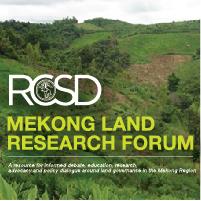Resource information
This paper focuses on legal and economic instruments of the multi-donor-driven land reform in Cambodia with its overarching aim of achieving tenure security and reparation after the Khmer Rouge. Land tenure applies to state public/state private property and private property. The essential property form for public land management is state public property. This property must be interpreted in the future as the property of Cambodian people that serves all human beings in the country. Having a common, participatory and legally binding land use planning system for Cambodia, the planning authorities at the national down to the communal level are able to guide and to restrict the use of land in order to protect and promote the public interest. Private land use rights should not be mixed up with private property rights. Private land use under conditions of tenure security is far more efficient than state land use. Yet that does not automatically require private property. State public property with the guarantee for private land use, e.g. through transparent and participatory leasing and redistributed ground rents, ensures fair and equal redistribution of land if the Cambodian government enforces compliance with these regulations for the benefit of the local people.


